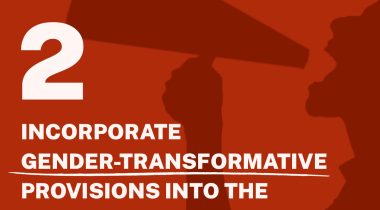
Nick Shaxson ■ Quote of the day: a tectonic shift in accounting standards

Yesterday we received an email containing our quote of the day:
“this decades-overdue accounting rule is a historic development of tectonic proportions. It will enable analyses never before possible and vividly tie the opportunity costs of economic development to other public priorities.“
Our emphasis added. We wrote about this recently, but thought we’d underline its importance, with this quote.
This comes from Greg Leroy of Good Jobs First, a non-profit organisation dedicated to exposing and opposing corporate welfare and the race to the bottom between U.S. states on taxes and subsidies. So many of these subsidies and pork are given in the name of ‘competitiveness’ (or some other weasel word.)
This change in the U.S. can and should serve as an inspiration to other countries, and international standard-setters and international financial institutions like the IMF, World Bank or OECD need to push for these kinds of changes, around the world.
In effect, governments have been showering subsidies on corporate actors without any transparency about what’s been going on, or whether they have achieved any benefits beyond enriching a few people. The result is a hotch-potch of nasty market distortions around the globe, with a whole lot of corruption thrown in. It is essential to shine a light on what’s been going on, as a basis for action.
Underlining the importance of this, Good Jobs First’s website currently has this as its headliner:
And here is the short explanation:
“GASB is Proposing New Rules for State and Local Governments to Report on the Costs of Tax-Based Economic Development Subsidies. Public Comments on the Proposed Standards Are Invited Now through January 30, 2015.
For the first time ever, the body that oversees public sector accounting standards is proposing that state and local governments report how much revenue they lose to business tax breaks granted for economic development purposes. Using the umbrella term “tax abatements” to cover property, income and sales tax-break programs, the Governmental Accounting Standards Board (GASB or “GAZ-bee”) is finally ending its long, conspicuous silence on the issue. “
The standard is imperfect of course — see the detailed analysis of it here — but the principle is now firmly established. They explain, further:
Why GASB’s Proposed New Rules are So Important
Never in its history has GASB issued standards specifically addressing the estimated $70 billion per year states and cities spend each year in the name of jobs. Although much of this spending is recorded (albeit in many different places), tax breaks for economic development are by far the costliest subsidies and also the least well disclosed. So GASB’s development of standards to cover reporting of business tax breaks is truly a landmark event.
GASB sets rules that accountants, auditors, and other finance professionals follow when they prepare financial reports. GASB’s rules are known as Generally Accepted Accounting Principles (GAAP). Because nearly all state and local governments conform to GAAP, this new standard will have huge ramifications.
Good Jobs First believes that when states and localities start issuing new data under this Standard in 2017, it will enable massive new bodies of analysis and reform policymaking. Organizations and scholars concerned with state and local finances, tax policy, government transparency, economic development, regionalism and sprawl, public education finance, campaign finance, and contracting and privatization will all gain access to significant information heretofore unavailable.
In an era of globalisation, the big powerful economies have been subsidising their corporations to help them gain market share in other countries (often developing countries): not only harming those other countries receiving the investment, but also arguably harming the investors’ host nations too.
(cross-posted with Fools’ Gold, with minor changes.)
TJN has for many years been pushing for complete transparency on all corporate subsidies, with an annual account by the finance minister to parliament of the costs and benefits of each subsidy. In so many cases, these subsides are handed out by regional development agencies, oil and mining ministries, and so on — agencies that don’t have to worry about the overall revenue effects of these policies: they are just batting for their own special interests. It is far better to have a single department – Finance – that is the only one with authority to make such decisions: they at least have overview of both the revenue and the spending side. But even so, corruption is central to these handouts – not only that, but these handouts also make a mockery of Ricardian comparative advantage theory. These policies do not generate productivity, true innovation and other things: they involve subsidy-chasing and wealth extraction from other sectors of the economy.
Related articles
One-page policy briefs: ABC policy reforms and human rights in the UN tax convention
Tax justice pays dividends – fair corporate taxation grows jobs, shrinks inequality
The millionaire exodus myth
10 June 2025
UN Submission: A Roadmap for Eradicating Poverty Beyond Growth
A human rights economy: what it is and why we need it

Do it like a tax haven: deny 24,000 children an education to send 2 to school

Incorporate Gender-Transformative Provisions into the UN Tax Convention
Just Transition and Human Rights: Response to the call for input by the Office of the UN High Commissioner for Human Rights
13 January 2025

Tax Justice transformational moments of 2024



